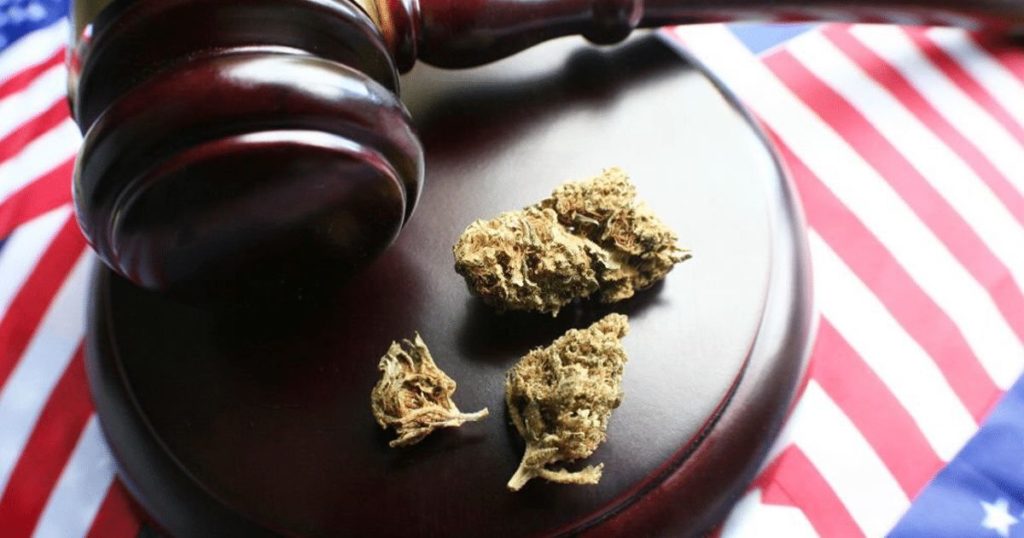Federal policy and regulations of the cannabis industry have been contentious and complicated since legalization started in different states across the country. Precedence for regulating the industry and prosecuting cannabis offenses were introduced in 2013 with the Cole Memorandum, but unfortunately repealed under Jeff Sessions’ Department of Justice in 2018. The current administration has openly stated that they do not wish to prosecute cannabis usage, yet have routinely failed to reinstate the Cole Memorandum or to pass alternative policy despite efforts from within the House, Senate, and Congress.
What Is The Cole Memorandum?
The Cole Memorandum or Cole Memo is an infamous document signed into law by the Department of Justice (DOJ) in August 2013. This historical memorandum shifted federal law enforcement of cannabis in the United States of America: it reiterated the alleged dangers of cannabis and reinstated it as federally legal under the Controlled Substance Act.
The memo provides a guideline for federal prosecutors regarding cultivation, distribution, sale, and possession in legal states as well as illegal states. The Cole Memo advises prosecutors to avoid prosecutions in legal states, with eight exceptions. Prosecutors are encouraged to take action if the prosecution can prevent sale to minors, revenue going to criminal enterprises, or distribution from legal to illegal states. It also encouraged prosecution when legal marijuana acts as cover for other illegal activity or violence is involved in the cultivation and distribution of marijuana. The remaining exceptions are: preventing intoxicated operation of heavy vehicles or machinery, preventing the growth of cannabis on public lands, and preventing usage on federal property.
These laws, while still insistent on the dangers of cannabis, allowed legal enterprises to operate successfully for nearly five years. In 2018 the Cole Memorandum was repealed by acting Attorney General Jeff Sessions. On January the 4th, 2018, Sessions referred back to previous cannabis regulations and allowed federal prosecutors their previous leeway, though this did not change much in practice.
The Current State Of Federal Cannabis Policy
Despite Jeff Sessions’ repeal of the Cole Memo not being practiced to the degree allowed, the cannabis industry anxiously awaits new federal guidelines. Current US Attorney General Merrick Garland currently has no plans to reinstate the Cole Memo or pass new legislation.
Garland stated in April 2022 that cannabis prosecutions are “not an efficient use of the resources given the opioid and methamphetamine epidemic that we have,” indicating that the Biden Administration has no intention of repealing Sessions’ memo. While he has made it increasingly clear that he and his administration have no plans of federally prosecuting cannabis users, decriminalization has come to a stagnant point in federal policy.
While the Cole Memorandum will be informally adhered to and treated as precedence, there are no confirmed efforts to recodify the DoJ’s official legal stance on cannabis law. Both Republicans and Democrats are currently pushing for comprehensive federal reform. Bipartisan congressional groups have even put forth a bill aiming to amend current legislation and model cannabis regulation after existing alcohol regulations. Representatives Dave Joyce (R-OH), Hakeem Jeffries (D-NY), and Brian Mast (R-FL) are teaming up on what they cal the Preparing Regulators Effectively for a Post-Prohibition Adult-Use Regulated Environment (PREPARE) Act—an incremental reform meant to inform comprehensive cannabis policy changes in the future. The US House of Representatives also recently voted in favor of a bill to legalize cannabis federally, while the Senate prepares to introduce their own legislation to decriminalize and legalize cannabis across the country.
Why The DoJ Needs To Act Now
Despite numerous attempts to legalize cannabis across the federal government, the Department of Justice’s failure to reinstate the Cole Memorandum or adopt new legislation puts the cannabis industry in a precarious situation.
Relying on informal precedence and lazy enforcement is not sufficient protection for cannabis consumers, producers, or growers across the United States of America. Not only does the Cole Memorandum exist already, but numerous other bills are currently being drafted by Congress, the Senate, and the House. Garland could easily reinstate the Cole Memo while newer, better legislation is created, but his insistence on retaining Sessions’ policies leave the industry in a frighteningly precarious state.
The attitudes of federal prosecutors are not in line with current law, and this should make it incredibly easy for the DoJ to institute formal legislation and regulation. Garland has been openly against the criminalization of cannabis in interviews yet has made no effort to codify his stance into law.
This leaves a dangerous opening for prosecutors to act with their own discretion and prosecute alleged offenses with little to no limits on their legal authority. The cannabis industry cannot expand or thrive in this Wild West-style law enforcement.
Garland and the DoJ need to act fast. Reinstating the Cole Memo or introducing a new memorandum into law are simple, quick processes and the DoJ has no excuse for their lack of legislation. Allowing law enforcement to exist at the discretion of law enforcement is both dangerous and impractical: the Department of Justice has a responsibility to create fair, clearly-promulgated laws, and Garland’s failure to do so will inevitably result in contentious legal debate and a long delay in the legalization of cannabis.
Enjoyed that first hit? Come chill with us every week at the Friday Sesh for a freshly packed bowl of the week’s best cannabis news!
















